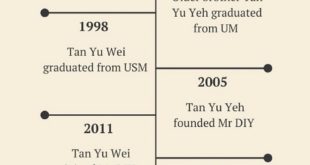
Since end-June, the different political parties in Singapore have been pushing out their manifestos.
If you don’t know what a manifesto is, it’s essentially a public declaration of policy and aims, especially one issued before an election by a political party or candidate.
In their manifestos, the parties outlined their political beliefs and proposed some key policies. (We also did a breakdown on their respective manifestos here if you’re looking for an executive summary)
Based on their manifestos, it’s clear to see that bread-and-butter issues like CPF, jobs and housing matters remain a centrepiece beyond tackling the COVID-19 crisis.
Here’s an overview of where the different political parties stand on these issues:
1. Jobs And Workforce
| People’s Action Party | – Protect workers from the immediate impact of COVID-19 with initiatives like wage subsidies, income relief and financial assistance – Create 100,000 new job opportunities to keep Singaporeans employed – Improve access to job opportunities with initiatives like setting up career centres in the heartlands, skills upgrading, and financial incentives for employers to hire local workers – Help young Singaporeans enter the job market, boost employment of workers aged 40 to 60, and encourage hiring of senior workers – Improve jobs and earnings for lower-wage workers, as well as boost hiring of workers with disabilities |
| Workers’ Party | – Introduce a national minimum wage of $ 1,300 per month for full-time work – Introduce a redundancy insurance scheme for workers, under which they will pay $ 4 a month, matched by employers, into an Employment Security Fund – Abolish retirement age – Address the gender wage gap where employers with 10 or more employees should be required to report to MOM the gender pay gap for the same job description – Make Careshield Life premiums gender-neutral – To provide paid re-entry programmes to make it easier for mothers or informal caregivers seeking to re-enter the workforce – Anti-discrimination legislation to be formally instituted to prohibit employment discrimination on the basis of race, gender, age and against Singapore citizens – Provide employers with incentives for hiring more Singaporeans, such as tax incentives or reduction in government charges |
| Peoples Voice Party | – Restore jobs to Singaporeans by freezing the issuance of new S-passes. This will significantly reduce the number of employment passes available to foreign workers. – Implement a minimum, or living, wage to meet the basic standard of living in Singapore |
| National Solidarity Party | – Establish a minimum living wage policy and the Tripartite Alliance for Fair and Progressive Employment Practices to combat worker exploitation and discrimination |
| Singapore Democratic Alliance | – Restrict the number of foreign workers that a company can hire and to ensure that these individuals come from universities that are accredited by the Singapore Government – Tighten the labour auditing process to prevent local firms from abusing the employment system by hiring “phantom” local staff so that they can hire more foreign workers |
| Red Dot United | – Ensure that Singaporeans benefit from employment legislation in FTAs like the India-Singapore Comprehensive Economic Cooperation Agreement (CECA) and the Employment Pass system – Revise the Employment Act to deter employees from abusing workers in the gig economy – Implement a Singaporean-First hiring policy – Re-evaluate the Fair Consideration Framework – Award HR managers who prioritise Singaporeans, and reserve jobs in future growth sectors – Match Professionals, Managers, Executives and Technicians (PMETs) to jobs before pursuing professional training programs, incentivising companies to hire them through schemes like the Professional Conversion Program |
| Progress Singapore Party | – Introduce quota for Employment Pass and lower quota for S Pass and Work Permit – Review free-trade agreements like Comprehensive Economic Cooperation Agreement (CECA) – Reduce dependence on foreign labour as its results in problems of congestion, social strains and depressed wages – Curb easy supply of foreign labour to push employers to invest in equipment or processes for higher productivity – Move toward higher value-add and higher-wage model |
| Singapore People’s Party | – Unemployment insurance should be mandated for all Singaporean workers to help them tide through a period of six months while they upskill or look for new jobs – Employers should also be required to give employees retrenchment benefits in accordance with the TAFEP guidelines – Regular reviews of free-trade agreements to ensure that they serve the best interests of a Singaporean worker – Abolish the retirement age so seniors who wish to continue to work can do so |
| Reform Party | – Unemployment benefits of up to six months based on 75% of the last drawn salary with a cap of $ 2,500 per month – Minimum wage of $ 10 an hour to ensure more jobs go to Singaporeans – Better wages for foreign workers – Minimum salary for the employment pass to be raised to $ 5,000 from the current $ 3,900 |
| Singapore Democratic Party | – Provide retrenchment insurance – Cut down on importing cheap foreign labour and encourage employers to hire Singaporeans first |
2. GST
| People’s Action Party | – GST increase from 7% to 9% sometime in next term of government (but not before 2022) – Enhance GST permanent voucher scheme – Government will continue to absorb GST on publicly subsidised healthcare and education – $ 6 billion Assurance Package to pay for GST increase for five years for most households (10 years for lower income households) |
| Workers’ Party | – No to a GST hike – Government should release revenue and expenditure projections for the rest of the upcoming decade so the public can make a more informed decision on raising GST – Deeper public discussion on alternative sources of revenue must be undertaken |
| Peoples Voice Party | – Eliminate GST for essential items like food, medical services, children’s clothes, books – Advocate for GST to be reduced from 7% to 5% |
| National Solidarity Party | – No GST increase – Look beyond GST mechanism for an alternative source – Give more tax credits to citizens looking after school-going children and aged parents (credits can come in the form of tax rebates in their annual income tax) |
| Singapore Democratic Alliance | – Reduce GST to 3% for basic items such as food, common household products and other essential items – Introduce a progressive GST taxation system of between 3% and 15%, where basic goods are taxed the least and luxury items are taxed the most |
| Red Dot United | – No to any rise in GST or any other fees for the next five years |
| Progress Singapore Party | – Basic necessities exempt from GST – Freeze tax and fee increases for the next five years |
| Singapore People’s Party | – No further increase of GST |
| Reform Party | – Suspension of GST for this year and the next – Following that, review GST with a view to eliminating it for certain essential categories like food, utilities and medicines – Additional tax for those who have not done National Service |
| Singapore Democratic Party | – Ensure revenue neutral budgets – Scrap GST for essential items – Reinstate estate duty – Raise GST for luxury goods – Raise income tax rate for the top 1% |
3. Cost Of Living
| People’s Action Party | – Care & Support Package for daily costs – Transport vouchers for public transport |
| Workers’ Party | – Free public transport for seniors and people with disabilities – Instead of multiple schemes for COVID-related relief, channel financial support through a stored value account for each citizen so people can see the full amount of support they are receiving – Set up single portal across government so citizens and companies can look up the support they have received as well as the schemes they might be eligible for with links to application forms |
| National Solidarity Party | – Monitor transport operations to prevent fare hikes – All persons with disabilities receiving public assistance are eligible for concessionary passes – All Concession Pass holders may enjoy concession rates at all times |
| Red Dot United | – Refocus policy making on wage redistribution to reduce income inequality – Peg ministerial salaries to multiples of the Median Gross Monthly Income from Work instead of the income of top earners |
| Progress Singapore Party | – Increase amount of Workfare and the cash portion to 80% (like wages) – After the economy establishes, introduce a living wage to all sectors – To peg ministerial salaries to median income |
| Singapore People’s Party | – Medishield Life premium to be paid by Government |
| Reform Party | – Seniors over the age of 65 would receive benefits of $ 500 a month – Children whose families are “at or below 1.5 median incomes” would receive $ 300 a month |
| Singapore Democratic Party | – Cut ministerial pay to fund assistance schemes for the poor – To provide retirees over 65 with a monthly income of $ 500 under the SDP Retirement Income Scheme for the Elderly (RISE) |
4. CPF
| Workers’ Party | – Singaporeans with balances that exceed Minimum Sum should be allowed to withdraw a reasonable percentage of the excess during COVID-19 – CPF Payout and CPF Life eligibility ages should be lowered to 60 – Government should notify CPF members on the 10-year moving average difference between GIC investment returns and net interest payable on CPF balances – If the difference between GIC investment returns and net interest payable is positive, a third of it should be returned as a special dividend, paid into CPF Special Accounts |
| Peoples Voice Party | – Return CPF at 55 – Push for CPF funds to be managed by the best professionals in the fund management industry |
| National Solidarity Party | – Citizens shall be allowed to withdraw temporarily from their own CPF Ordinary Accounts, whenever they are retrenched or in times of hardship. A household can withdraw a maximum amount of $ 3000 per month up to a 6-month period, capped at 20% of the Ordinary Account. Such withdrawals should be fully repaid when the Account Holder is gainfully employed. – List of CPF-approved tertiary providers should be expanded both in scope and availability |
| Singapore Democratic Alliance | – Change the CPF system so that senior citizens receive their CPF savings in full upon hitting the retirement age – Reserve a component of CPF savings for Medisave and MediShield Life |
| Red Dot United | – Allow CPF members the option to withdraw all their monies at retirement age – Allow members to borrow from their own CPF accounts to sustain themselves amid an uncertain jobs market – Conduct a study into whether introducing more competition from professional fund managers can get members better returns on their CPF savings – Provide more options for CPF members, such as incentivising the staggered withdrawal of CPF monies in 5- or 10-year intervals after retirement age – The state could make contributions to the CPF accounts of stay-at-home caregivers |
| Progress Singapore Party | – Allow withdrawal of up to $ 50,000 at the age of 55 |
| Singapore People’s Party | – Extend the CPF Education Scheme to allow parents’ CPF monies to be used for their children’s tertiary education at all institutions, including overseas – Fundamental re-think of the CPF scheme is necessary to ensure retirement adequacy – Allow partial withdrawals of CPF on compassionate grounds – Return on investments from the investment of CPF monies should be made public – When returns are better than expected, the government should distribute the increased returns as a bonus |
| Singapore Democratic Party | – Abolish Retirement Sum Scheme and replace it with an opt-in clause that would allow people to choose to have their savings retained and returned in instalments – Abolish the CPF Minimum Sum scheme |
5. Housing
| People’s Action Party | – Enhanced housing grants for buying HDB flats |
| Workers’ Party | – HDB public rent should be forgiven until all lockdown restrictions are lifted – Equalisation of housing options for single parents – HDB BTO selling prices in non-mature estates should be pegged to household incomes – Discounts should be offered to lower income applicants of 2- and 3-room flats to achieve debt service ratios of 10% and 20% respectively – HDB should give each buyer a breakdown of land sale costs, developmental costs, and subsidies – Offer universal buy-back scheme to all HDB lessees to back-stop resale prices to a certain degree – Consider launching more SERS exercises and providing a SERS scheme which does not require a proxy relocation site (use BTO and balance flats for relocation) – Lower the age at which singles can apply for a 2-room BTO flat from 35 to 28 – Remove ethnic quota for HDB sales |
| National Solidarity Party | – HDB should release comprehensive detail of the costs (land, construction, development, administrative, etc) of each project on its website before launching it, to allow evaluation of its cost efficiency – Government should render more assistance for housing to those with genuine financial difficulties – More subsidised rental flats should be developed to reduce the waiting time for citizens in need – Subsidised rental flats should be prohibited from being used to house foreign workers – HDB flats owned by PRs should be prohibited from resale within 8 years’ of ownership, and any profit realised from the sale thereof should be subject to taxation to prevent speculative transaction. Such flats should also be prohibited from being leased out either wholly or in part. |
| Red Dot United | – Make the En-bloc Redevelopment Programme mandatory – Allow singles to buy bigger 3-room or smaller BTO – Lower the minimum age under the Single Singaporean Citizen Scheme and the Joint Singles Scheme progressive, so that singles can eventually buy flats at 30 – Establish greater transparency in the cost of building HDB flats with a breakdown of land cost and building cost, in order to price HDB flats in a sustainable manner – Price new flats at multiples of median income and location factor – Ensure flats are available to young people |
| Progress Singapore Party | – En-bloc redevelopment for all old flats – Sale of en-bloc rights – Peg new flat prices to income levels – Bring down housing costs for young Singaporeans |
| Singapore People’s Party | – Extend the lease buyback scheme to allow all HDB owners (after a period of five years) the option to sell their leases back to HDB at a price near the market value – Extend SERS to all estates – Abolish the Ethnic Integration Quota |
| Singapore Democratic Party | – Introduction of Non-Open Market (NOM) flats, a category of flats sold at cost (minus land cost) that won’t be allowed to be sold on the open market – Implement the Young Families Priority Scheme to grant balloting priority for first-timer families with children or couples who are expectant for Balance Flats or new Built-To-Order Flats in non-mature estates – Increase the inclusiveness of public housing by enabling single parent families with children to own flats, and providing rental housing for low-income Singaporeans – Enhance the Lease Buy-Back Scheme to more effectively assist needy senior citizens to have a secure retirement – Abolish the Ethnic Integration Programme |
| People’s Power Party | – Home Improvement Programme, Voluntary Early Redevelopment Scheme or Selective En bloc Redevelopment Scheme should be planned and carried out as soon as possible in MacPherson |
6. Healthcare
| People’s Action Party | – Public healthcare subsidies of up to 80% – CHAS – Expand polyclinic network to 32 by 2030 – Redevelop Singapore General Hospital and rejuvenate National University Hospital – Novena Community Hospital to be completed by 2022 – New integrated acute and community hospital in the east by 2030 |
| Workers’ Party | – All public and CHAS-affiliated private healthcare institutions should channel drug, medical equipment and material purchases through a central buying agency tasked to negotiate better prices with manufacturers – Healthcare providers should be allowed to buy from alternative suppliers if they can obtain lower costs – Agency for Care Effectiveness should conduct a detailed comparative study of drug prices between Singapore and countries in the region to inform the public – Step up efforts to promote the registration of generic drugs in the public healthcare system – MediShield Life annual claim limits should be removed and replaced with a lifetime claim limit (lifetime claim limits should be raised for patients claiming for bills in B2-class and C-class wards) – Lower cost of intermediate and long-term care with more subsidies – Patients about 60 should be allowed to use their Medisave for all medical expenses not already covered by MediShield Life, Medifund, or other assistance schemes |
| National Solidarity Party | – Provide an affordable Comprehensive Medical Insurance with coverage to include hospitalisation and outpatient treatments, including treatment for COVID-19, at private or restructured hospitals, polyclinics and affiliated private clinics. It shall also cover all pre-existing medical conditions of children. – This Comprehensive Medical Insurance should be mandatory for all citizens, and the government will contribute at least 50% of the premiums – Comprehensive Medical Insurance can be extended to non-citizens, but without government subsidy – For citizens receiving public assistance, the government should pay the full premium – Promote the use of generic drugs which are comparatively cheaper – Free Trade Agreements that may restrict any rights to use generic drugs should be carefully reconsidered |
| Red Dot United | – Provide heavily subsidised quarterly-to-annual doctor consultations without means testing (carry out preventive health measures like vaccinations and screenings then) – Improve Medifund to provide support for needy Singaporeans and assistance with huge medical bills – Adopt a proactive regulatory-change framework for medical technology usage, especially in home care and other areas where it reduces cost in healthcare for Singaporeans – Establish a watchdog agency to examine healthcare costs and abuses of the system – Consider a national health insurance scheme, incentivising government regulation of healthcare costs |
| Progress Singapore Party | – Medishield Life premium should be paid by the Government |
| Singapore People’s Party | – Improve accessibility to mental health professionals – Unpaid mental health leave – Review criteria for sentencing under Mandatory Treatment Order so that offenders suffering from mental health disorders can be sentenced more appropriately and get the help they need – Provide greater subsidies for mental health services, particularly for communities that are disadvantaged |
| Reform Party | – Universal healthcare |
| Singapore Democratic Party | – Increase the number of hospital beds, doctors, nurses and other healthcare personnel – Increase intake of medical, nursing and other healthcare students at the tertiary level, or make it easier for private specialists and general practitioners to serve in public hospitals – Enact legislation to ensure that every single citizen is covered by a basic healthcare policy regardless of age, employment status or gender – Establish a single-payer universal healthcare system in which the government manages a central health investment fund – Individuals have to co-pay 10% of medical fees, capped at $ 2,000 per calendar year – Variation in quantum of contribution: PRs should pay more, while lower income pay less, and the government fully subsidises those who can’t afford to pay – Removal of GST for drugs and health services |
| People’s Power Party | – Build a community hospital in MacPherson |
Check out our GE 2020 microsite for the latest election-related news, find out which constituency you belong to, and who’s running where on the election battleground here: https://vulcanpost.com/ge2020/
Featured Image Credit: HR in Asia / The Sun Daily / The Online Citizen / Ministry of Communications and Information



